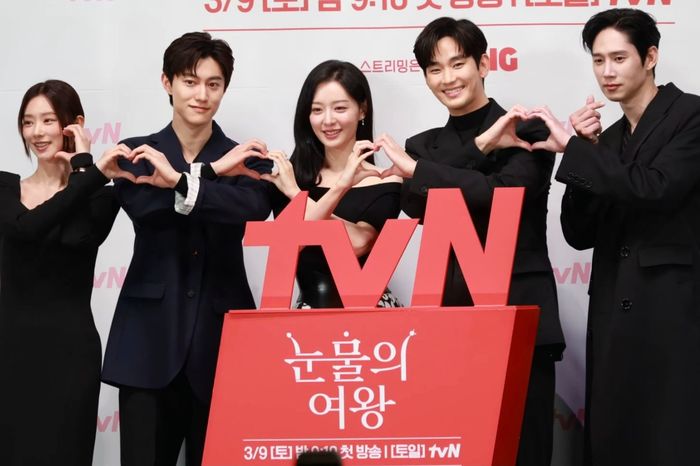The queer gaze meets the absurd in Love Lies Bleeding
The Incredible Hulk if it were directed by a queer woman and produced by A24

Afew friends and I went to see Love Lies Bleeding on the day of its UK release. I’d been desperately excited to see it: muscular women, a murder plot, Kristen Stewart – what more could one want from a film?
We clambered into our seats in the middle of the cinema, oohing and aahing at the advertisements (we are easily amused). We’d all been excitedly discussing the film in the lobby. I made my friends take a picture with the film poster, doing a “pretend I’m your mother and we’re on holiday” bit. We thought we knew what to expect. Kristen Stewart would fall in love with a bodybuilder and said bodybuilder would win a contest. There would be some kind of crime subplot. Overall, we were expecting a queer romantic thriller with a fairly straightforward narrative.
“The audience is treated to plenty of frames of sweaty, muscular Jackie and a pining Lou”
Of course, we were completely wrong.
Love Lies Bleeding, from British director Rose Glass, follows Lou (Kristen Stewart), a moody gym employee, whose main concern in life is her sister, Beth, who is in an abusive relationship. She meets a bodybuilder, Jackie (Katy O’Brian), who is hitchhiking to a bodybuilding contest after leaving her family. The two fall in love and the audience is treated to plenty of frames of sweaty, muscular Jackie and a pining Lou.
Soon, however, the audience is embroiled in a gun smuggling operation, gore-ridden, steroid-related murders and strange, monstrous transformations. The queer love story is put aside for more pressing – and frankly surreal – matters.
While I adored this film, despite it subverting my expectations, I was most interested in the execution of the queer gaze throughout. The “male gaze” is a feminist term for the sexualisation of characters within film and other visual artforms in ways that emphasise what is thought to appeal to men. Usually, this means a female subject being represented as a sexual object for a heterosexual male viewer. Tropes like the “Manic Pixie Dream Girl” fall under this category. Often, such tropes emphasise femininity and minimise traditionally masculine qualities.
“Sitting outside stereotypical beauty standards is something that can be and is attractive”
The queer gaze is a subversion of this. Feminine and masculine traits often appear in the same character, who consequently becomes an object of admiration and desire. Sitting outside stereotypical beauty standards is something that can be and is attractive.
In Love Lies Bleeding, female sexuality is represented in highly non-traditional ways. While there were sexual scenes, these moments were integrated into the plotline; at no point was there sex for sex’s sake. Moreover, both main characters openly desired one other and were desired by others, while displaying traits that were masculine and not typically sought after in female love interests.
Jackie’s muscular build is not only glorified and openly admired by Lou, but by men at the gym. Female love interests often have a particular body type – and that body type is slender. It’s uncommon for a love interest to be broad and muscular and even less common for this to be a point of appeal (as it was for Jackie).
“Jackie’s muscles pop and grow, accompanied by strange bubbly noises”
Lou is also desired by multiple female characters, despite having an unconventional haircut, boyish fashion sense and sickly appearance. Ironically, there is something Edward Cullen-like about her pallor! Both characters have masculine and feminine traits and this mixture is meant to appeal to the audience – textbook queer gaze, enjoyed thoroughly by the audience.
Besides this celebration of the queer gaze, the other aspect of the film that stood out to me were its moments of utter absurdity. Throughout the film, Jackie’s muscles pop and grow, accompanied by strange bubbly noises. Lou’s father, the story’s villain and leader of the gun smuggling operation, bites the head off a cockroach. During the much-anticipated bodybuilding competition, Jackie enters a trance and throws up a fully-sized Lou, covered in some sort of placenta-esque mucus.
At the end of the film, in a grand climax, Jackie transforms into a giant woman. She becomes comically large, her muscles inflating alongside obscene sound effects – no doubt imitating The Incredible Hulk. This wildly surreal scene encapsulates exactly what I liked about Love Lies Bleeding: its absurdity. Rose Glass didn’t shy away from the abnormal; she embraced it wholly and the film is better for it.
Perhaps there is even an intersection between the queer gaze and surreal directorial choices. Possibly, Love Lies Bleeding intends to emphasise the joy of existing outside societal and cinematic norms.
There is something valuable, enjoyable and important about being yourself. There is also something valuable, enjoyable and important about films that always keep you guessing.
 News / Candidates clash over Chancellorship25 April 2025
News / Candidates clash over Chancellorship25 April 2025 News / Cambridge professor paid over $1 million for FBI intel since 199125 April 2025
News / Cambridge professor paid over $1 million for FBI intel since 199125 April 2025 Interviews / Dr Ally Louks on going viral for all the wrong reasons25 April 2025
Interviews / Dr Ally Louks on going viral for all the wrong reasons25 April 2025 Comment / Cambridge students are too opinionated 21 April 2025
Comment / Cambridge students are too opinionated 21 April 2025 News / Zero students expelled for sexual misconduct in 2024 25 April 2025
News / Zero students expelled for sexual misconduct in 2024 25 April 2025






